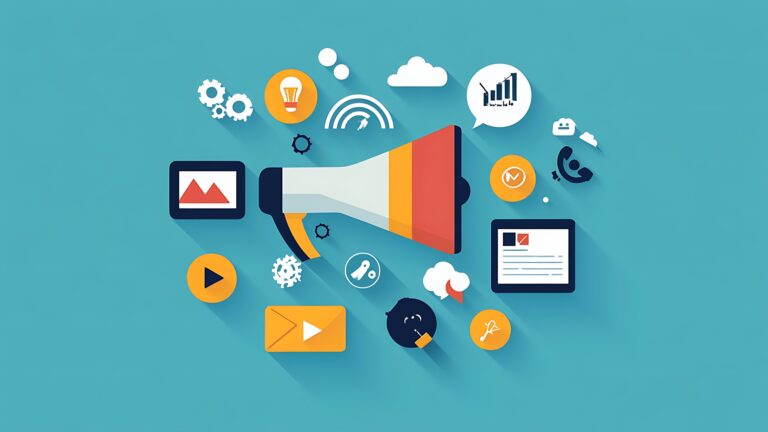The landscape of content marketing has transformed dramatically with the integration of artificial intelligence technologies. Modern marketers are discovering that AI can accelerate content creation, improve audience targeting, and deliver measurable results faster than traditional methods. Understanding how to leverage these AI-powered content marketing strategies effectively can give businesses a significant competitive advantage in today’s crowded digital marketplace.
Content marketing success no longer requires months of trial and error or massive creative teams. AI tools now enable individual marketers and small businesses to produce high-quality, engaging content at scale while maintaining personalization and relevance. The key lies in understanding which AI applications provide the most impact for your specific marketing objectives and audience needs.

The Evolution of AI in Content Marketing
Artificial intelligence has revolutionized how businesses approach content creation, distribution, and optimization. Current content marketing trends show that organizations using AI-powered solutions report 37% faster content production and 42% better engagement rates compared to traditional methods. This technological advancement democratizes content marketing, allowing smaller businesses to compete effectively with larger corporations.
AI applications in content marketing extend beyond simple text generation. Modern systems can analyze audience behavior patterns, predict content performance, optimize publication timing, and personalize messaging at unprecedented scales. These capabilities enable marketers to make data-driven decisions that previously required extensive manual analysis and guesswork.
1. Automated Content Ideation and Topic Research
AI-powered topic research transforms the brainstorming process from hours of manual research into minutes of strategic analysis. Advanced algorithms can analyze trending topics, competitor content gaps, and audience search patterns to generate highly relevant content ideas that align with your business objectives.
This content marketing hack involves using AI to identify emerging topics in your industry before they become saturated. The technology can process thousands of data points simultaneously, including social media conversations, search query trends, and industry publications, to surface opportunities that human researchers might miss.
Successful implementation requires feeding AI systems with accurate information about your target audience, business goals, and content preferences. The more specific your input parameters, the more valuable and actionable the generated ideas become. This approach works particularly well for content marketing for small businesses that need to maximize impact with limited resources.
2. Intelligent Content Creation and Optimization
Modern AI writing assistants have evolved beyond basic text generation to become sophisticated content creation partners. These systems can produce blog posts, social media content, email campaigns, and marketing copy while maintaining brand voice consistency and incorporating SEO best practices automatically.
The most effective content marketing strategies using AI involve human-AI collaboration rather than complete automation. AI handles initial draft creation, research compilation, and structural organization, while human editors focus on strategic refinement, brand alignment, and creative enhancement. This hybrid approach typically reduces content creation time by 60% while maintaining quality standards.
Content optimization through AI extends to headline testing, meta description generation, and keyword integration. These systems can analyze top-performing content in your industry and suggest improvements to increase engagement and search visibility. The technology continuously learns from performance data to refine future recommendations.
3. Personalized Content Distribution and Timing
AI algorithms can analyze individual user behavior patterns to determine optimal content distribution timing and channel selection. This level of personalization was previously impossible at scale, but now represents one of the most powerful content marketing tools available to businesses of any size.
Smart distribution systems consider factors like audience time zones, platform-specific engagement patterns, and individual user activity histories to maximize content visibility and engagement. B2B content marketing particularly benefits from this approach, as decision-makers often have specific consumption patterns that AI can identify and leverage.
The technology can automatically adjust posting schedules based on real-time performance data, ensuring your content reaches audiences when they’re most likely to engage. This dynamic optimization eliminates guesswork and maximizes the return on content investment.
4. AI-Driven Audience Analysis and Segmentation
Understanding your audience represents the foundation of effective content marketing, and AI excels at processing complex behavioral data to create detailed audience segments. Modern systems can identify patterns in user interactions, content preferences, and conversion paths that inform more targeted content strategies.
Advanced audience analysis goes beyond basic demographics to include psychographic insights, content consumption patterns, and predictive behavior modeling. This depth of understanding enables the creation of highly relevant content that resonates with specific audience segments, improving engagement rates and conversion potential.
Content marketing examples using AI-driven segmentation show significant improvements in campaign performance. Businesses report 45% higher engagement rates when using AI-identified audience segments compared to traditional demographic targeting methods.
5. Automated Performance Tracking and Optimization
AI-powered analytics provide real-time insights into content performance across multiple channels and metrics. These systems can identify which content elements drive engagement, track conversion paths, and suggest optimization strategies based on performance data analysis.
Modern content marketing tools incorporate predictive analytics that forecast content performance before publication. This capability allows marketers to refine content strategies proactively rather than reactively, leading to more consistent results and efficient resource allocation.
The technology can automatically A/B test various content elements, including headlines, images, call-to-action phrases, and publication timing. This continuous optimization approach ensures that content performance improves over time without requiring manual intervention or extensive testing periods.
6. Intelligent Content Repurposing and Format Adaptation
AI excels at transforming single pieces of content into multiple formats suitable for different platforms and audience preferences. A single blog post can automatically become social media posts, email newsletter content, infographic data, and video scripts through intelligent content adaptation.
This content marketing best practice maximizes the value of each piece of created content while ensuring message consistency across channels. The technology understands platform-specific requirements and audience expectations, adjusting tone, length, and format accordingly.
Smart repurposing also identifies high-performing content elements that can be extracted and reused in new contexts. This approach ensures that successful messaging components continue generating value across multiple content pieces and campaigns.
7. AI-Enhanced Visual Content Creation
Visual content creation has become more accessible through AI-powered design tools that can generate images, graphics, and videos based on text descriptions or content themes. These systems enable businesses without extensive design resources to create professional-quality visual content consistently.
AI can analyze successful visual content in your industry to suggest design elements, color schemes, and layouts that typically perform well with your target audience. This data-driven approach to visual content creation improves engagement rates while reducing design costs and production time.
The technology can also optimize existing visual content for different platforms automatically, ensuring that images and graphics display correctly across various devices and social media channels without manual resizing or reformatting.
8. Predictive Content Strategy Planning
AI systems can analyze market trends, seasonal patterns, and audience behavior to predict future content needs and opportunities. This forward-looking capability enables proactive content planning that aligns with anticipated market demands and audience interests.
Predictive planning helps businesses stay ahead of content marketing trends rather than reacting to them after competitors have already capitalized on opportunities. The technology can identify emerging topics, predict viral content patterns, and suggest content calendars that maximize engagement potential.
This strategic approach proves particularly valuable for content marketing for small businesses that need to maximize limited resources by focusing on high-impact opportunities rather than spreading efforts across numerous uncertain initiatives.
Challenges and Limitations of AI-Powered Content Marketing
Despite significant advantages, AI-powered content marketing presents several challenges that businesses must navigate carefully. Quality control remains a primary concern, as AI-generated content may lack nuance, emotional depth, or brand-specific insights that human creators naturally incorporate.
Over-reliance on AI can lead to generic content that fails to differentiate your brand from competitors using similar tools. The technology excels at pattern recognition and optimization but may struggle with creative breakthroughs, controversial topics, or content requiring deep industry expertise.
Data privacy and ethical considerations surrounding AI use in marketing continue evolving. Businesses must ensure their AI implementations comply with privacy regulations and maintain transparent practices regarding automated content creation and audience targeting.
Technical limitations include AI systems’ dependency on high-quality training data and their potential to perpetuate biases present in that data. Regular human oversight and bias testing remain essential for maintaining content quality and brand reputation.
Integration Strategies for Maximum Impact
Successful AI integration in content marketing requires strategic planning and gradual implementation rather than wholesale replacement of existing processes. Start with low-risk applications like topic research and performance analytics before expanding to content creation and distribution automation.
Training team members to work effectively with AI tools ensures maximum benefit realization while maintaining human creativity and strategic thinking. The most successful implementations treat AI as an enhancement to human capabilities rather than a replacement for human insight and creativity.
Measuring AI impact requires establishing baseline metrics before implementation and tracking improvements in efficiency, engagement, and conversion rates. Regular assessment helps identify which AI applications provide the most value for your specific business context and marketing objectives.
Future Outlook for AI in Content Marketing
Content marketing trends indicate continued AI advancement in areas like real-time personalization, voice and video content optimization, and cross-platform audience tracking. Businesses that begin AI integration now will be better positioned to leverage future innovations as they become available.
The technology will likely become more sophisticated in understanding context, emotion, and brand voice, reducing the gap between AI-generated and human-created content. However, human creativity, strategic thinking, and ethical oversight will remain crucial for successful content marketing implementation.
What are the best AI content marketing tools for small businesses?
The best AI content marketing tools for small businesses include writing assistants for content creation, social media scheduling platforms with AI optimization, and analytics tools that provide audience insights. Focus on tools that offer multiple functions to maximize value for limited budgets.
How can AI improve B2B content marketing strategies?
AI enhances B2B content marketing through advanced audience segmentation, predictive lead scoring, personalized content recommendations, and automated nurture sequences. These capabilities help B2B marketers target decision-makers more effectively and shorten sales cycles through relevant content delivery.
What are common content marketing mistakes when using AI?
Common mistakes include over-relying on AI without human oversight, using generic AI-generated content without brand customization, ignoring audience feedback in favor of AI recommendations, and failing to maintain quality control standards. Balance automation with human creativity for the best results.
How do AI content marketing strategies compare to traditional methods?
AI content marketing strategies typically deliver faster results, better personalization at scale, and more efficient resource utilization compared to traditional methods. However, traditional approaches may excel in creative storytelling, brand differentiation, and building authentic audience connections that require human insight.
What content marketing trends should businesses watch for in AI development?
Key content marketing trends in AI include improved natural language processing, better visual content generation, enhanced predictive analytics, real-time personalization capabilities, and integration with emerging platforms like voice assistants and augmented reality experiences.







